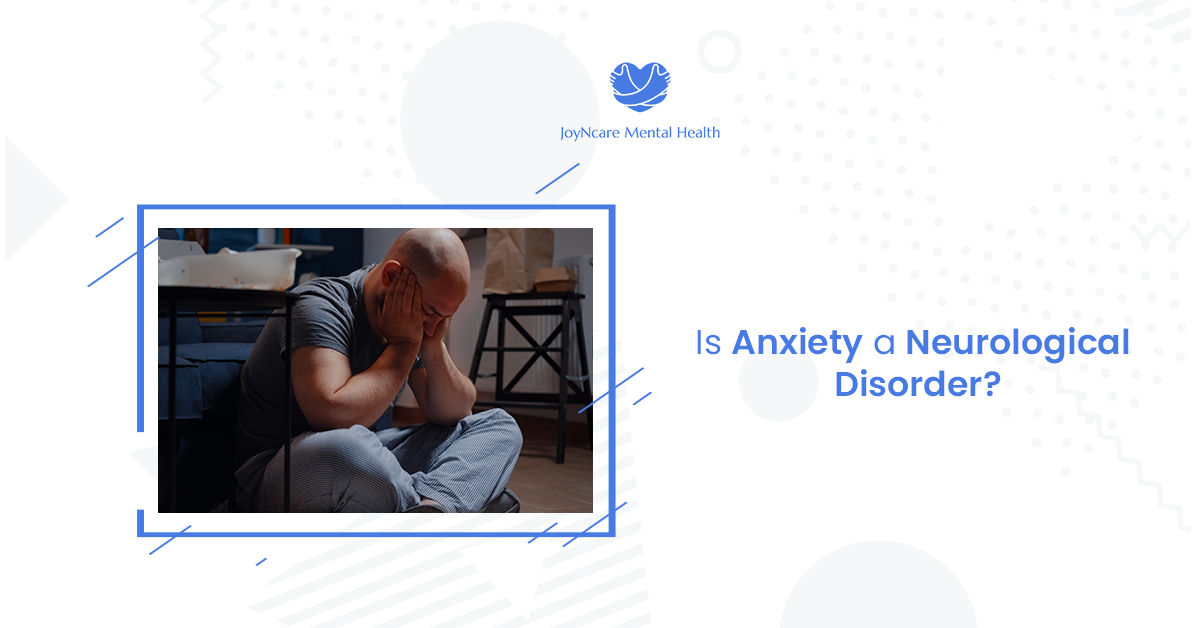Stress brings anxiety, which is normal. However, some people feel anxious often, which can be an overwhelming experience. It makes you wonder, is anxiety a neurological disorder?
Knowing if anxiety is viewed as a disorder could help understand how anxiety works and how it affects our daily lives.
Let’s explore neurological disorders in this post. We’ll highlight where anxiety fits into these conditions and whether it can ever lead to them.
What is a Neurological Disorder?
They’re conditions that affect brain function or the nervous system.
Common examples include epilepsy, multiple sclerosis, and Parkinson’s disease.
They usually cause trouble in the nervous system, leading to physical, cognitive, or emotional symptoms.
In examining if an anxiety disorder is a neurological issue, we should determine how anxiety influences our nervous system.
How Anxiety Impacts the Brain

Even though anxiety is not usually considered a neurological disorder, it still impacts the brain significantly.
Anxiety originates in the brain; in fact, it’s rooted in the areas that handle our feelings and reactions to danger.
- Amygdala: This part of the brain is often named our “fear center”. It identifies risks and triggers a “fight-or-flight” reaction, leading to increased attention and stress.
- Prefrontal Cortex: This part of the brain is in control of higher-order functions like decision-making. If a person feels anxious, the prefrontal cortex may have difficulty regulating the reactions from the amygdala.
- Hippocampus: This is the brain’s memory center. It stores data about past threats, which makes it crucial in our anxiety reactions.
All these regions work in unison to develop and control anxiety reactions, which indicates that anxiety and neurology are closely linked.
Is Anxiety a Neurological Disorder?
The short answer is not exactly.
Yes, we classify anxiety as a mental health condition or psychiatric disorder.
Yet, it does originate in the brain and involve our nervous system, so there is some neurological influence.
It’s not like other neurological disorders caused by structural or chemical changes.
The roots of anxiety are often emotional or mental stressors.
Anxiety may not be a neurological disorder, but it can trigger similar sensations like headaches, dizziness, and muscle tension.
Can Anxiety Cause Neurological Symptoms?
One of the essential questions people ask is, can anxiety cause neurological symptoms?
The answer, simply, is yes. Some of the familiar symptoms are:
- Headaches and migraines due to stress-induced muscle strain.
- Numbness and tingling from hyperventilating.
- Feelings of dizziness are often mistaken for a neurological concern.
All these arise from anxiety setting off our “fight-or-flight” defense response. While these symptoms mimic those seen in neurological disorders, they’re primarily due to anxiety.
Anxiety and Neurology: The Overlapping Symptoms
Understanding the link between anxiety and neurology is crucial.
Anxiety might amplify neurological signs and make people hypersensitive to sensations. It could cause them to view regular physical symptoms as serious health issues.
For instance, a person fearing illness might believe a plain headache is a severe neurological problem. This thought escalates their worry.
Treatment for Anxiety with Neurological Symptoms
You can manage the signs of anxiety that appear neurological through various treatments tackling physical and mental symptoms. Common methods include:
-
Cognitive Behavioral Therapy (CBT)
CBT is widely used to control anxiety. It reshapes harmful thought patterns and promotes healthier responses to anxiety triggers.
- Medication
Medications like selective serotonin reuptake inhibitors (SSRIs) and benzodiazepines often help alleviate anxiety symptoms.
They may not directly manage neurological signs, but they lower anxiety, eventually reducing neurological-like signs.
-
Mindfulness and Relaxation Techniques
Exercises such as deep breathing, meditation, and muscle relaxation can soothe the nervous system. These practices lessen anxiety’s impact on the brain and body.
-
Lifestyle Adjustments
Eating healthily, getting enough exercise and rest can help the body handle stress and lessen anxiety’s effects on your neurological functions.
When to Seek Help
If anxiety symptoms are intense or disrupt everyday life, you should reach out to a mental health expert.
A psychiatrist or therapist can assess if anxiety is affecting brain functions and suggest suitable treatment.
With the support and the proper steps, it’s possible to manage symptoms and live life fully.
Conclusion: Managing Anxiety and Neurological Symptoms
Anxiety disorder might not fit the exact definition of a neurological disorder, but its effects on the nervous system and its ability to cause neurological-like symptoms show a connection between anxiety and neurology.
Anxiety can cause symptoms that appear to be brain-related, but with the proper treatment, these symptoms can be managed.
If you or a loved one are grappling with anxiety and want to explore ways to lessen its impact on your life, think about contacting JoyNcare Mental Health.
Our team of mental health experts can help make your symptoms clear and provide personal support to boost your mental health.
FAQs
-
Is anxiety neurological?
Yes, anxiety has ties to our nervous system. It interacts with specific parts of your brain, like the amygdala and the prefrontal cortex, which look after fear and stress reactions.
Differences in brain chemicals like serotonin and dopamine can also affect anxiety symptoms.
-
Can anxiety cause neurological problems?
Anxiety can lead to neurological-like symptoms, such as headaches, dizziness, and numb feelings, stemming from long-term stress.
Although it doesn’t directly cause neurological diseases, anxiety can amplify symptoms in conditions like migraines or epilepsy if it gets extreme.
-
Do neurologists treat anxiety?
Yes, neurologists can assist in handling anxiety, notably when it’s linked to nerve symptoms or disorders.
However, psychiatrists or psychologists often deal better with broad anxiety or mental health-focused treatment. Neurologists might work with these specialists to control symptoms.





No comment